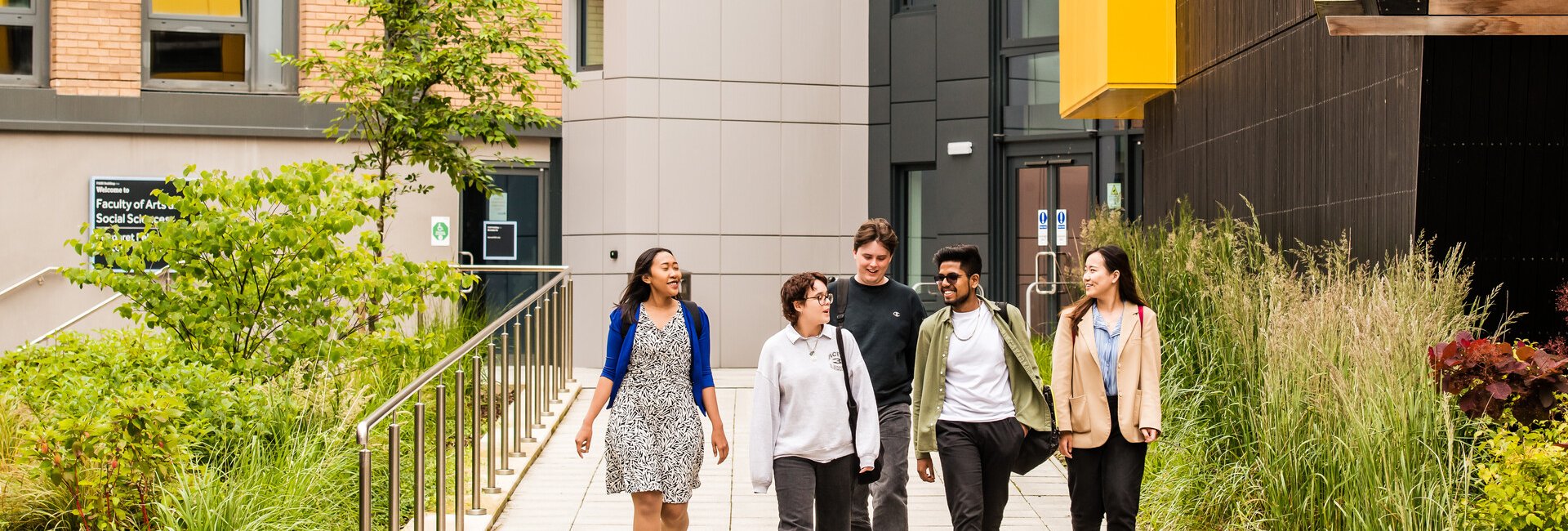Lancaster University Open Day
28 Jun 2025, 09:00
Lancaster

Why Lancaster?
Learn to see the world in different ways, as you build a degree from diverse module choices covering literature and philosophy from around the globe
Hear from visiting authors and scholars at our many literary events on campus, online, and in Lancaster’s historic Castle Quarter
Broaden your perspective with a decolonised curriculum led by experts in non-Western philosophy and world literature
Sharpen your thinking in regular small-group seminars, where you’ll debate and critique philosophy and literature under the guidance of our expert tutors
Develop skills in critical thinking, analysis and persuasion that will prepare you for a range of exciting graduate careers
Investigate the ways in which both literature and philosophy grapple with fundamental human questions – such as right and wrong, freedom and restraint, and what it is to lead a good life. Learn to read literature with attention to philosophical themes and philosophy with attention to literary themes.
An intellectual landscape without boundaries
Through studying both literature and philosophy, you’ll develop a unique toolkit to interpret, analyse, and critique the ideas that shape our world. You might study the idea of liberty in both, say, Utilitarianism and the Harlem Renaissance; or explore the concept of the self in both the work of the British Romantics and in philosophers of the same period.
You’ll have the freedom to build your degree from a large and diverse range of modules. In philosophy we have experts in both Western and non-Western traditions, meaning you’ll be able to explore everything from Kant to feminist philosophy to Islamic ethics and Indian philosophy. Likewise in literature we have experts in both English and world literatures, offering modules in everything from Medieval theatre to contemporary Palestinian fiction.
Applying your skills in practice
You’ll have the opportunity to develop your skills in a real-world context by getting involved with one of our four student-run literary journals: Cake, Lux, Flash and Errant. In your first year of studies, you’ll choose from mini-module options designed to enhance your professional skills, like Creating a Literary Tour. You’ll also have the chance to attend our literature-specific careers workshops.
Additionally, you’ll have the opportunity to apply for an internship with the Richardson Institute for Peace Studies, based in our department of Politics, Philosophy and Religion, which could see you contribute to a real-world research project with organisations such as think tanks and non-governmental organisations (NGOs).

Learn what it's like to study at Lancaster University. From key stats to campus highlights, open days, and more - find everything you need to know here.
The following entry points are available for this course:
This section shows the range of grades students were previously accepted with - learn more. It is designed to support your research but does not guarantee whether you will or won't get a place. Admissions teams consider various factors, including interviews, subject requirements, and entrance tests. Check all course entry requirements for eligibility.
Students aged 17/18 who applied to this course were offered a place.
See how students with your grades have been accepted onto this course in the past.
Operated by the Office for Students
Employment after 15 months (Most common jobs)
Go onto work and study
The number of student respondents and response rates can be important in interpreting the data – it is important to note your experience may be different from theirs. This data will be based on the subject area rather than the specific course. Read more about this data on the Discover Uni website.
No fee information has been provided for this course
Tuition fee status depends on a number of criteria and varies according to where in the UK you will study. For further guidance on the criteria for home or overseas tuition fees, please refer to the UKCISA website.
For information on our fees, please see www.lancaster.ac.uk/study/fees-and-funding.
Bailrigg
Lancaster
LA1 4YW
Visit our website Visit our course page
Email:ugadmissions@lancaster.ac.uk
Phone:01524 592028